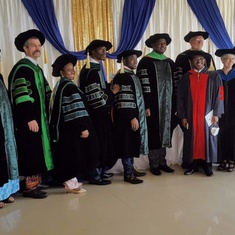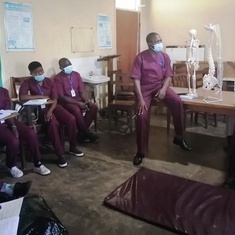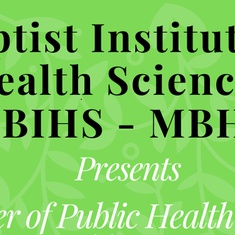Academic Centres
Overview
We offer a broad range of rigorous and prestigious graduate and undergraduate programs. Our research, scholarship and creative exploration have earned an international reputation, and our learning opportunities, internships and leadership experiences will help you master the skills you need to succeed.CENTRE FOR ADVANCED MEDICAL TRAINING
The Centre for Advanced Medical Training hosts the post-graduate medical education programs of the Institute. Currently, there are two residency programs: General Surgery Residency under the Pan-African Academy of Christian Surgeons (PAACS) and the Internal Medicine Residency under the Christian Internal Medicine Specialization (CIMS), and one fellowship Program: The Head and Neck Surgical Fellowship, also under PAACS. Post-graduate medical education commenced at Mbingo Baptist Hospital in July 2007 with the establishment of the General Surgery residency under the auspices of the Pan-African Academy of Christian Surgeons (PAACS).
CENTRE FOR HEALTHCARE RESEARCH
The Center for Healthcare Research (CHR) hosts the medical research programs for the Baptist Institute of Health Sciences and the CBC Health Services. The CHR has carried out and participated in several ground-breaking research works including the largest ever clinical research in surgery, the Global Covid-19 Surgery Study. It was a study led by the University of Birmingham and has been awarded the Guinness World Records title for the world's largest scientific collaboration, involving over 140,000 patients in 116 countries. There is great potential for developing more partnerships with major research institutions to address medical priorities in Cameroon.
CENTRE FOR NURSING AND ALLIED HEALTH SCIENCES
The Centre for Nursing and Allied Health Sciences offers certificate-level training and bachelor’s and master’s degrees in nursing and related health professions (Medical Imaging, Physiotherapy, Occupational Therapy, Laboratory technician, etc.)
CENTRE FOR PUBLIC HEALTH
This Centre houses all the Masters in Public Health and Postgraduate Public Health-Related programs. Programs such as the Master of Public Health (MPH) are viewed as essential contributors to equipping health practitioners to meet the demands of the health system. MPH programs are aimed at equipping various health practitioners from a variety of disciplines, with key public health competencies and with collaborative strategies to address population-level risk factors contributing to the global and national burden of disease. They train health professionals by drawing on knowledge and skills from a variety of biomedical and social science disciplines to define, assess, and ultimately resolve public health problems. In addition, the programs equip health practitioners to become innovative public health professionals with an emphasis on multidisciplinary approaches that apply the latest scientific knowledge.”
The situation is no different in Cameroon, where there is a similar need for MPH programs. There are several MPH programs in Cameroon by both public and private higher education institutions, and, of the module, online modules (of varying quality and prices) are also available. However, the BIHS seeks to provide a high-quality MPH program with a diverse, highly-qualified, and experienced faculty with rich practical experience, and a diverse student cohort at an affordable price. Students will be able to keep their jobs in various locations as they join together in cohorts with diverse learners across Cameroon and other countries.
The use of an online program allows access to this education by those who are not able to attend a university physically for social, geographical, employment, or disability reasons. It also allows access to a wide range of modern educational sources which can be immediately updated, as well as access to an international faculty through Peoples-uni and NextGenU.org. Online education is ideally suited for those who are in the workforce – the majority of students who will join the module–as they do not have to leave their work and deplete the essential workforce while they train. Online education also allows students from other parts of Africa to join the module and add an international component to the capacity building through this program. This international student component can be very beneficial in the cross-pollination of ideas and solutions to health problems.
Subscribe To Our Newsletter
Be the first to know about our events and news.




